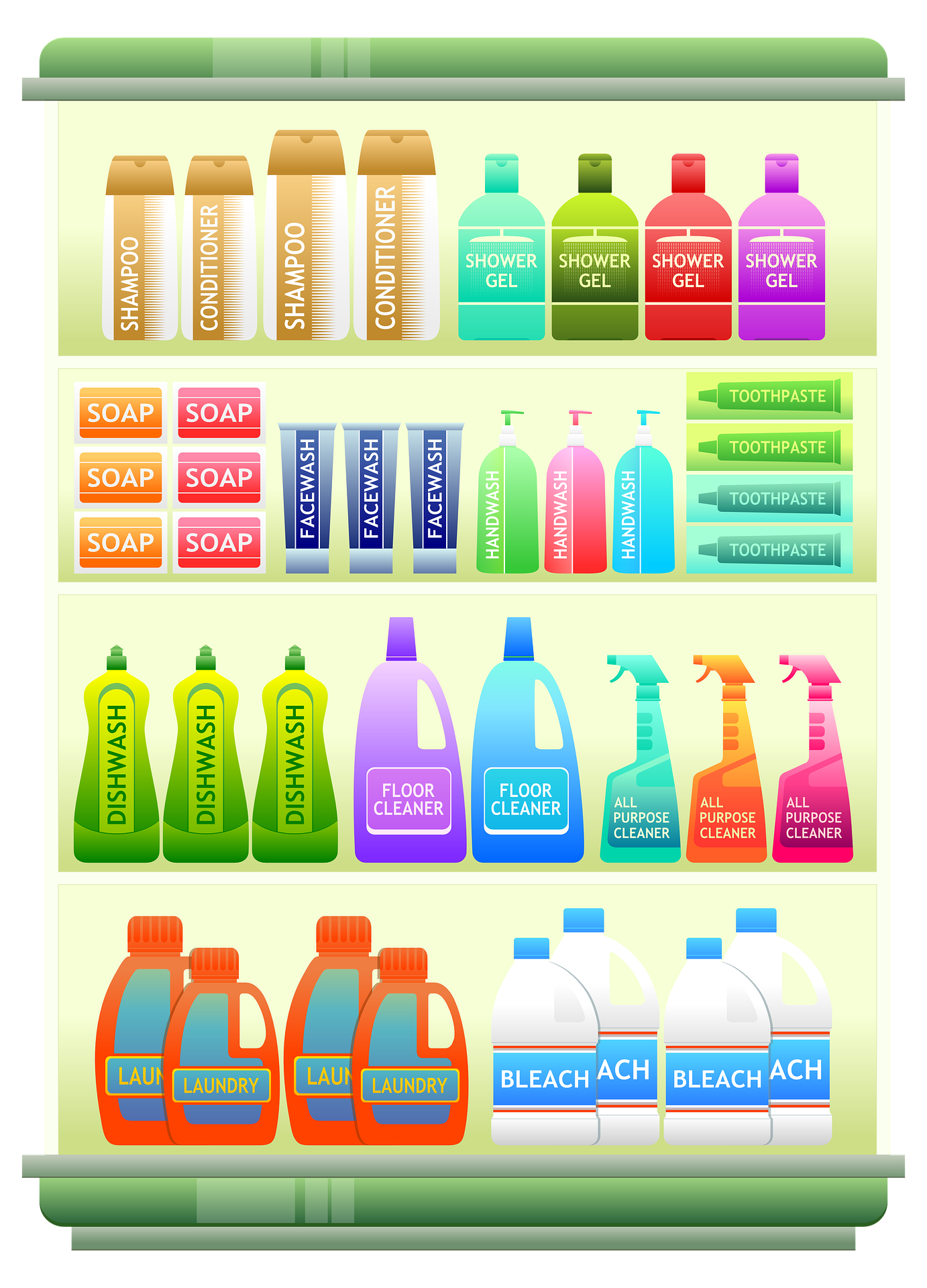Most of the household products that we use for cleaning — from our bodies to last night's dishes — are 80 percent water. Which means most of the packaging for cleaning products is used to contain water which most of us have on tap at our homes.
It also means that when all those cleaning products are transported from the factory to under our kitchen sinks, we're carrying around 80 percent water.
All the additional packaging and transportation means more pollution and more carbon emissions aka more poison for the planet.

There are, of course, alternatives to your run-of-the-mill cleaning products. You can purchase sustainable detergents, dish soap, and even a spray to clean your dog's little accidents. But these products usually focus on using natural ingredients instead of the amount of water the product contains or its packaging and transportation.
Another alternative is to make your own. Which arguably is the greenest option you have. There are many recipes online for any product you can imagine. You can make your own fabric softener, silver cleaner, deodorant, and even sunscreen.
Here at Kinder, we've tried DIY makeup cleaner, toothbrush, and an all-purpose cleaning spray. It's safe to say some went better than others...
And that's the issue with making your own. It's a bit of a gamble when it comes to how effective your cleaner will be and, in the end, it's not very sustainable if you need to use four times the amount of a regular cleaner.

Dutch designer Mirjam de Bruijn has come up with a solution to these dilemmas. Her project 'Twenty' proposes the non-water ingredients in cleaning products to be concentrated and sold as powder, bar or liquid capsule.
What sets De Bruijn's idea apart from solid shampoo bars and, well, soap is the idea that the customer would buy the concentrated cleaning agent and add water to it at home.
De Bruijn's sleek design is still in the concept stage but the change it suggests is promising. It takes very little effort, from the customer, but means a great deal when it comes to reducing the unnecessary carbon emissions caused by packaging and transporting water.
In the Global West, we're privileged to have safe water at our disposal but one in ten people in the world don't have access to running water and two out of five have to use contaminated water resources.
The lack of clean water leads to diseases such as diarrhoea, cholera, dysentery, typhoid and polio, which results in over 1000 deaths a day. Simavi is a non-profit organisation tackling water, sanitation and health challenges to stop preventable diseases, reduce mortality rates and boost social and economic development. You can support them by donating below.




